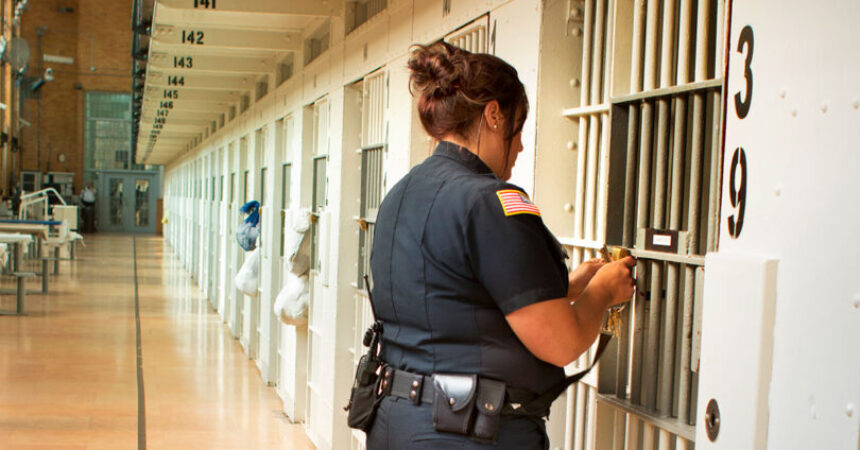
With Trump facing lengthy prison time, experts don’t have definitive answer if a former president can be jailed

Photo submitted
By Stacy M. Brown
NNPA Newswire Senior
National Correspondent
@StacyBrownMedia
Former President Donald Trump once famously said he could shoot someone on Fifth Avenue and go unpunished.
“I could stand in the middle of Fifth Avenue and shoot somebody, and I wouldn’t lose voters,” he boasted during a 2016 rally in Iowa.
Seven years, two impeachments later, a civil sexual assault conviction and four indictments —Trump just may have been right. The most recent indictment for the former president came last Monday night when he was charged with 13 felony charges in the RICO case. RRICO is typically used in criminal case against organized crime.
The GOP’s 2024 presidential frontrunner currently faces a staggering 91 felony charges spanning four criminal cases, many of which carry the potential for significant prison time.
Having faced judges in Florida, New York, and Washington, Trump hasn’t been required to take the standard mugs hot, be perp walked, or even post bail or bond.
For example, he faces 34 criminal charges in New York where the average cash bail amount for a felony is approximately $39,000 per offense, or, in his case, a total of $1.36 million.
Typically, federal bail for felonies could run as much as $200,000 per felony, according to the Bail Agents Network.
That means that an individual seeking bail on 44 felony charges could have to ante up as much as $8.8 million to remain free pending trial.
Meanwhile, if Trump is convicted on all 91 counts, assuming he receives the maximum statutory penalties, he could receive more than an astonishing 641 years in prison.
But there remains the Fifth Avenue question. Could a judge legally sentence the former president to a prison cell?
A major obstacle could be a law that guarantees lifetime Secret Service protection to all ex-presidents.
President Obama signed an updated version of that law in 2012, granting protection to minor children until the age of 16 and spouses unless and until they remarry.
The law could mean that Trump may have some say in his incarceration and the safety measures taken during any potential prison sentence.
Since 1965, lifetime protection has been afforded to former presidents, except for Richard Nixon, who waived it 11 years after his resignation.
Chuck Rosenberg, a former top federal prosecutor, and counsel to then-FBI Director James B. Comey, offered his insights.
“Any federal district judge ought to understand it raises enormous and unprecedented logistical issues,” Rosenberg told the Washington Post. He said probation, fines, community service, and home confinement are all alternatives.
According to Rosenberg, the possibility of Trump serving prison time is “theoretically, yes and practically, no.”
On the Secret Service’s role, experts and commentators have varying opinions.
Mike Lawlor, an associate professor at the University of New Haven, suggested that Trump would likely have “one or two secret service details sitting outside his cell with the correctional officers” if he were to serve prison time.
Michele Deitch, an expert on prison oversight at the University of Texas at Austin’s LBJ School of Public Affairs, told Business Insider that a former president would “have a target on his back” and be closely monitored by the Secret Service.
Ronald Kessler, an author specializing in the Secret Service, provided further insights into the potential security arrangements. He estimated that Trump’s current Secret Security detail could consist of up to 30 officers, with 10 to 12 agents on duty at any time.
Kessler dismissed the notion of just two agents posted at a prison, deeming it “crazy” given the dangerous environment. “Just think it through,” he told freelance journalist Dave Roos. “What would just two agents do in such a dangerous environment?”
However, Kessler emphasized that if Trump were imprisoned, he would receive no other special treatment and would not be granted access to privileges like a telephone.
“(The prison) would have to serve him meals in his cell,” Kessler said. “It would just be pure protection.”
The prospects of Trump’s potential prison sentence and the accompanying Secret Service protection have raised complex questions that prosecutors may not consider.
Still, the charges the twice-impeached and four-time indicted ex-president faces come with the possibility of serious prison time.
If Trump is remanded to prison, he “certainly would not be part of the general population,” retired FBI special agent Ken Gray told Business Insider. “You could almost put him in a separate little hut.”
Finally, in an interview on MSNBC, Former Attorney General Eric Holder said the Secret Service could punt its responsibilities of protecting Trump to the Bureau of Prisons.
“If they were called upon to imprison a former president, I think they could come up with a way to do it,” Holder said.
“There is a way in which the Justice Department, the Bureau of Prisons could actually do it.”







